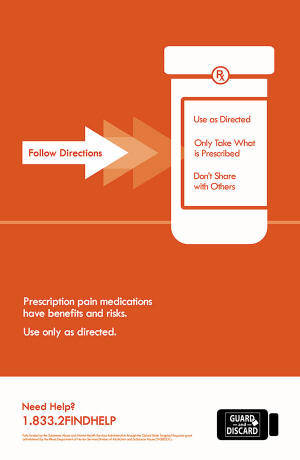|
 The day began with
lunch from the Woods Café. As guests finished eating, Angela
Stoltzenburg, Director of the CHC started the meeting. She reported
that she had attended the Association for Community Health
Improvement 2018 Conference in Atlanta, Georgia. She said that it
was no surprise that the Opioid epidemic was a big topic at the
conference. She noted that the Surgeon General had been at the
conference and had spoken about the need for a widespread “village”
style approach to getting this issue under control. The day began with
lunch from the Woods Café. As guests finished eating, Angela
Stoltzenburg, Director of the CHC started the meeting. She reported
that she had attended the Association for Community Health
Improvement 2018 Conference in Atlanta, Georgia. She said that it
was no surprise that the Opioid epidemic was a big topic at the
conference. She noted that the Surgeon General had been at the
conference and had spoken about the need for a widespread “village”
style approach to getting this issue under control.
Stoltzenburg also noted that as the meeting progressed the
suggestions for approaching the problem were spot on with what the
local taskforce was already doing. She said it was reassuring to see
that the local initiatives were on par with what is being discussed
on a national level.
The balance of the morning discussions was led by Nadia Klekamp, a
taskforce member and staff member of Chestnut Health Systems.

Klekamp said that the group would be looking at goals and strategies
for 2018 and discussing a few bullet points from each strategy. She
began with the goal of “Promoting Drug Disposal.”
Unused medications stored away in home medicine cabinets can be a
source for young people who are looking for pain killers. Disposing
of the drugs into landfills or into the sewer system in not
recommended, so disposal of these drugs becomes an issue for many
people, they end up with drugs in the medicine cabinet.
The CHC, Lincoln Police Department and Logan County Department of
Public Health have partnered to establish permanent drug disposal
options in Logan County. At the health department as well as the
police station, unused medications and other drugs can be turned in
for disposal.
The LCDPH has a collection box in their lobby area. Medications can
be deposited in the box in their original bottles, or all dumped
into a sealable plastic bag. At the Lincoln Police Department, drugs
are to be brought in in a sealed bag, or the department staff will
provide a bag. The drugs are then handed over to someone in the
department.
Lincoln Chief of Police Paul Adams was on hand Thursday and said
right now there is no secure location for a drop box like that used
at the health department. However, when the new station is opened
that will change.
Because there is no secure drop location, the LPD is asking that
folks bring their disposable drugs into the station during normal
business hours of the day as that is when there is the greatest
likelihood that someone will be on hand to accept the drugs. This is
also the case at the health department. While the box is in the
lobby, deposits can only be made during LCDPH office hours.
A question came from the group asking how well known this program
was to the community. Where was it being advertised that the drug
disposal program is in practice?
Stoltzenburg answered saying that word has been put out, but she is
currently working with the Memorial Health Systems Public Relations
and Graphics departments to create posters, fliers, and a video
explaining the drug disposal program. She said the video would be
available for social media and she was also hoping to work with the
local theater to get the video played there from time to time as a
public service.

A guest from outside the county asked about what the LPD and health
department does with the drugs after they are collected. She noted
that is a big problem in her county because once the drugs are
collected, it is complicated getting them destroyed. Adams reminded
the group that Logan County is going to have its own incinerator for
the drugs. Working with a grant from the Abraham Lincoln Memorial
Hospital Foundation, the city has purchased an incinerator that is
in the process of being installed in town. Adams asked if the
incinerator would be at the police station. It will not, but it will
be close by, within city limits.
Another strategy or goal addressed Thursday was the goal to “provide
parental education.”
One aspect of that education is the administration of Naloxone (Narcan)
when someone is overdosed. Klekamp said that the training provided
by Chris Schaffner from the Human Service Center is a good tool for
this education component. Klekamp explained that Schaffner’s
training is not only on the use of Narcan, but it also covers the
symptoms of overdose and the symptoms of drug abuse. She said the
group would like to use Schaffner to make a training video that
would cover all these same topics.
Other handout materials are also in the planning stages and will
distributed widely when they are all complete. The group talked
about how to distribute the video and other materials once they are
ready.
A suggestion was made that the video could be put on social media,
then parents could watch the video in the privacy of their own home.
However, another comment came that there really was no ‘privacy’ on
social media. It is known that when a person uses their “like” or
“share” option in social media then whatever the topic, it is
automatically transmitted to all “friends” that one has clicked on
the specific post.

It was also mentioned that the education portion of the strategies
should not be limited to parents. Tonita Reifsteck said that
grandparents are also in need of education. She suggested the group
plan on doing some training and education sessions at the Oasis
Senior Center.
There was also a suggestion that handouts could be distributed at
Third Friday events in Lincoln, Market Days in Mount Pulaski, the
ALMH Market on Saturdays, and any other community event.
Another suggestion was
that printed materials could be sent home with school kids. Klekamp
asked the school representatives in attendance to comment on that.
The group was told that would work with younger kids where the
teachers send home a folder inside the backpack each day. But for
the kids who are responsible for delivery, it won’t happen.
The group also heard an update from Paul Adams on the Safe Passages
program. He said to date they have had five persons who sought help.
There were others who came to talk but wouldn’t go further. He said
that there is still a need for volunteers to be guides in the
program.

[to top of second column] |

Again there is a need for more visibility for the program. The community is not
fully aware of what Safe Passages is and how it will work. And there is a need
for dollars to support the program specifically in the area of providing gas
money for the people who volunteer to transport a participant to the appropriate
rehab facility.
Mark Landers with the Logan County Sheriff’s Office and Logan County D.A.R.E.
reported that DARE America is going to be providing a specific education for
high school aged and up students that focuses specifically on drug use. He would
be willing to provide that training locally as needed.
A representative from Memorial Health System shared a pamphlet that is being
given out at Memorial facilities regarding opioid safety. The pamphlet is all
inclusive, talking about what constitutes an opioid drug, how to manage pain
without drugs, side effects of opioids, safely storing drugs and how to dispose
of drugs.
A question was asked about needle exchange in Logan County, was it offered
anywhere. The answer is that currently it is not, though there is a need. It was
explained that needle exchange will help reduce the cases of hepatitis c. Hep c
will stay on a needle for up to 65 days. Use, reuse, and sharing of needles
increases the odds of contracting hep c.
It was also reported that last year there were eight cases of hep c in Logan
County, with all the patients being in the 20-something age category. On the
good news side of the story, there were zero cases of HIV.
Guests learned that the LCDPH offers free STD testing, and it is confidential.
Anyone who wishes to have the STD testing may call the health department and ask
for Mary. When the person arrives at the health department, he or she does not
check in at the front desk. The person goes straight to Mary’s office for the
test.

Another discussion focused on the increasing use of fentanyl, which is a highly
dangerous opioid available by prescription, but also now on the illegal market
as well. The drug is dangerous not only to the user but to anyone who comes in
direct contact with the drug. A representative on hand for the Illinois State
Police shared that ISP had recently done a seizure on I-55 involving a drug that
they thought was cocaine, but it turned out to be a very large quantity of
fentanyl.
Angela Stoltzenburg and Klekamp together reported that the “Hidden in plain
sight” program at the ALMH Market last summer was not well attended, so they
didn’t see it as having been very effective. In addition, Stoltzenburg said that
at the Wellness Expo this past February very few people attended the Narcan
training. She said that she had stood in the lobby at the Park District,
encouraging people to go to the training, and she heard responses such as “I
don’t know anyone who does drugs.” She said that right there is a big part of
the problem.
Stoltzenburg said everyone knows people who are doing drugs, they just don’t
know they know. Grandma and grandpa need to know that there is a chance their
grandkids are doing drugs. There has to be greater awareness on a broad
spectrum.
The taskforce will continue working toward the goals of greater awareness. The
next meeting of the taskforce is scheduled for Thursday, May 4th. That will be a
breakfast meeting and will be held in the Steinfort Rooms at ALMH.
[Nila Smith]

Samples of some of the handouts



 |